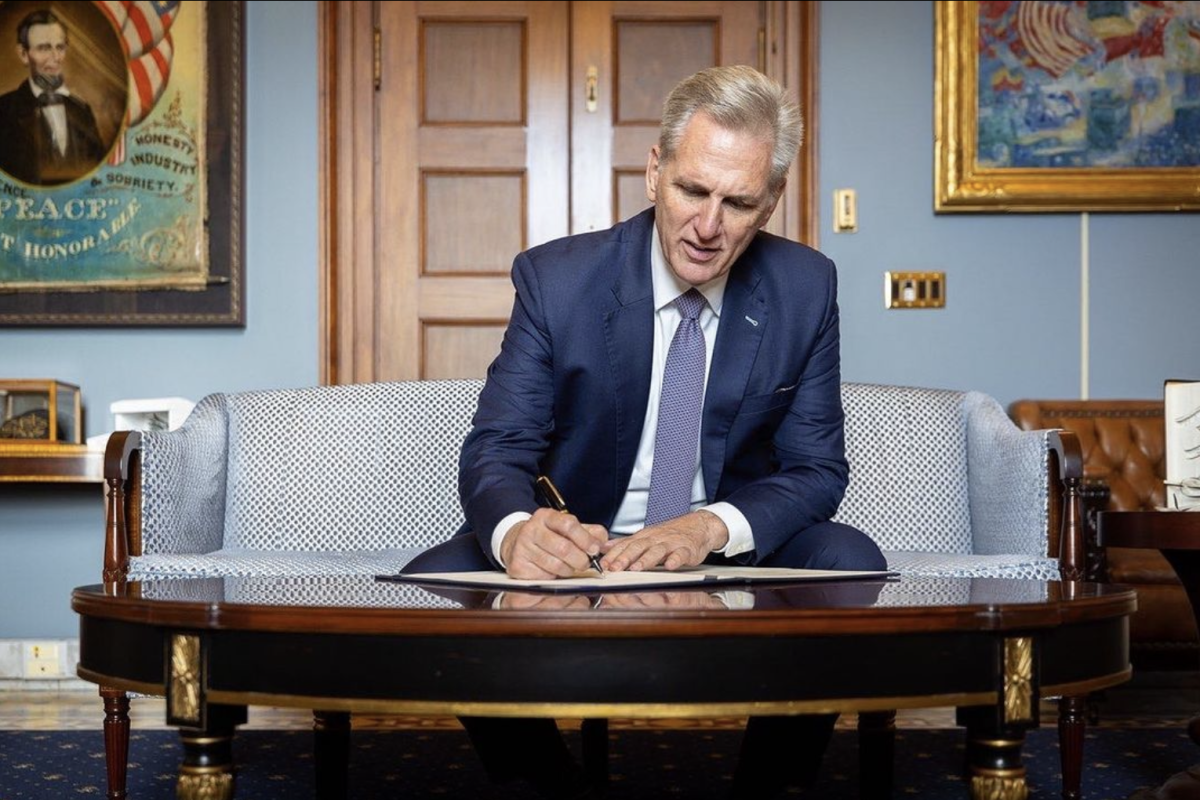Congress avoided a politically motivated, costly government shutdown after the House of Representatives passed a stopgap spending bill hours before the deadline on Saturday. The bill was passed after former Speaker of the House, Kevin McCarthy, struck a deal with Democrats to keep the government funded through Nov. 17, defying hardline Republicans in his own party. The deal, which was widely rejected by the House’s Freedom Caucus, ultimately cost McCarthy his role as Speaker of the House when members of the right-wing caucus joined with Democrats to vote in favor of his removal.
The move, which was spearheaded by Rep. Matt Gaetz of Florida, is the first instance of a House Speaker’s removal in the history of the United States. “Speaker McCarthy made an agreement with House conservatives in January. And, since then, he has been in brazen, repeated material breach of that agreement,” Gaetz said on Monday Oct. 2.
At the beginning of the negotiations, Gaetz and the Freedom Caucus were seeking steep cuts to spending, reduced aid to Ukraine, and further investigations into President Biden and his son, Hunter Biden. When it became apparent that those demands wouldn’t be met, McCarthy and the majority of House Republicans sought help from Democrats across the aisle. “I want to be the adult in the room, go ahead and try,” McCarthy said. “And you know what? If I have to risk my job for standing up for the American public, I will do that.”
The passage of the temporary spending bill delayed the risk of a government shutdown, an outcome that would have left four million federal workers without income and closed many federal services such as access to national parks. The bill kept spending at its current levels, except for Ukrainian military aid which was put on hold.
While the immediate risk of shutdown was averted, it’s still unclear as to what will happen after funding runs out in Nov., and if Republicans will even be able to come to an agreement as to who to elect as speaker. The top two contenders for the role are Ohio Rep. Jim Jordan, endorsed for the position by Donald Trump, and Louisiana Rep. Steve Scalise. Whomever ends up as Speaker of the House will be tasked with negotiating a middle ground between the Freedom Caucus and the rest of the more moderate Republican coalition, a problem that McCarthy could not solve.
With the Republicans divulging into disarray, House Democrats capitalized on the opportunity to portray themselves as the party more capable of competent leadership. With a presidential election a year away, it’s unclear whether Republicans will be able to retain their majority in the House or be able to retake the Senate. “Extreme MAGA Republicans have lost, the American people have won,” House Minority Leader Hakeem Jeffries told reporters.
Though many Republicans are relieved from the fear of being blamed for a disastrous shutdown, it’s clear that there is a major rift within their party that will make legislating difficult. As the funding deadline looms, the race for the speakership will only intensify the divisions between right-wing Republicans and their more moderate counterparts.








